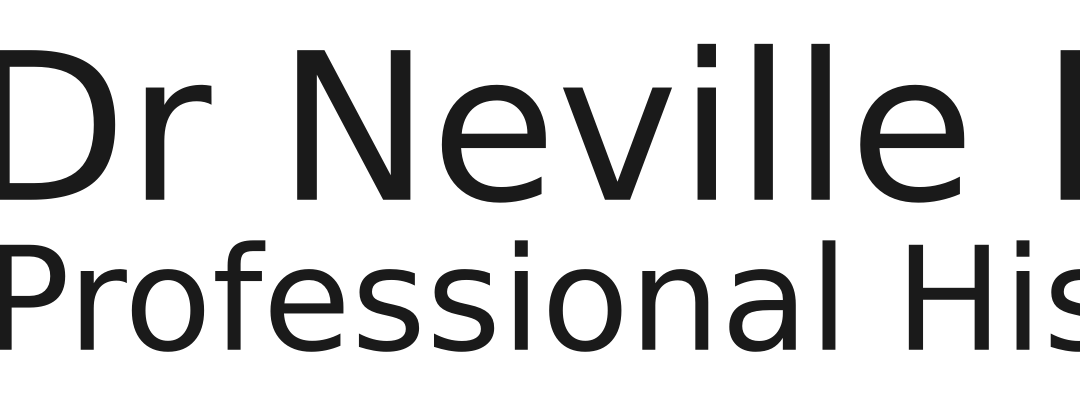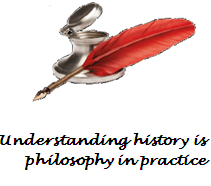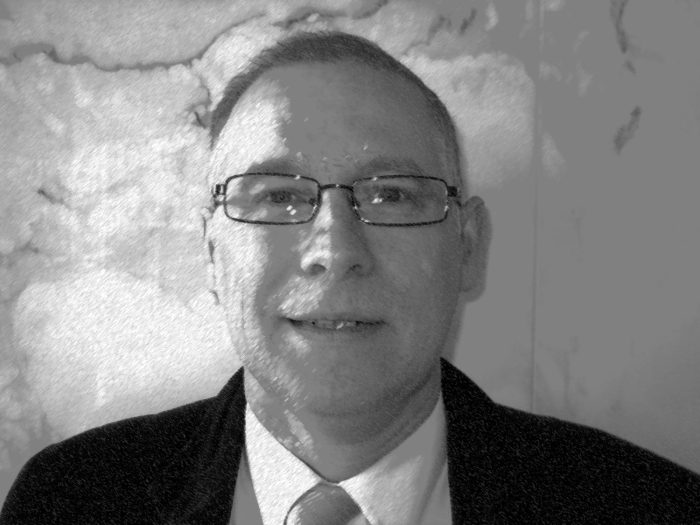
by Neville Buch | Sep 26, 2024 | Concepts in Educationalist Thought Series
“thinking…is no more and no less an organ of perception than the eye or ear. Just as the eye perceives colours and the ear sounds, so thinking perceives ideas.” Rudolf Steiner (1883), Goethean Science, GA1.
The Goethe-Steiner multi-layered worldview, known as “Goethean science,” has been spiralling back for some time; in Australia since the popularity of John Armstrong’s Love, Life, Goethe: How to be Happy in an Imperfect World (Penguin Press, 2007). That book was published almost two decades ago, and it is only in recent years that that the philosophical worldview is being revaluated by technical academic philosophers who, only recently, dismissed Johann Wolfgang von Goethe and Rudolf Steiner as out-of-date thinkers.
There were cultural and historical reasons why Goethe and Steiner were dismissed a hundred years ago, circa 1924, but in 2024 “the dismissal” is stupidity. A hundred years ago Steiner, who died in 1925, reinterpreted the Goethean science with unfortunate parts of Christian Gnosticism, which is effected (there is no affection) by pseudohistory, BUT, indeed, is the same for Orthodox Christianity, as much effected (there is no affection) by pseudohistory. From Goethean science, Steiner developed what he called, “spiritual science”. On the sound philosophical basis, and the most basic of terms, it is merely the clarity of thinking from characteristic Western philosophy to spiritual questions. What is “spiritual” is determined differently by the different ‘article statements’ of the philosophy. Steiner’s esotericism, such as clairvoyance, and neognosticism are historically encrusted on a philosophy which rejects the esoteric-claimed, historical, ‘reality’. Had Steiner been more aware of his own present history, he would have seen his own ‘colours’ of perception were not real.
Whatever technical differences exist among the article statements, there is a consensus worldview, which is pitched by it antithesis (“arch enemy”) hard materialism – ‘the will’ which will not entertain any idea of something beyond human experience and comprehension, for the slavish belief in social atomism. The antithesis can be read as pure ideology, as the thesis of Goethean science-Spiritual science can also be as pure ideology. It is not necessarily so, and the synthesis proposed are many. The point for our times, and it has had a century coming, is that hard materialism has several unnecessary and negative sociologies; more in particular, in the economic perspective, inflationary consumption or consumerism: “more material is the good life.”
Goethean science is how we basically understand natural philosophy today. Natural philosophy is the philosophical study of physics, that is, nature and the physical universe. Goethe created an alternative to the rationalist scientific method, which still plagues us in the early 21st century as pure ideological rationalism. There had been up until Goethe:
- Bacon’s natura naturata, based on inert nature, but meant the ignorance on vital nature (natura naturans);
- Descartes’ rational-empirical model based on the predominance of mentative thinking (sinnen) via the intellect (Sinn);
- Hume’s sense-based model where perception is only a mental representation of what is real; which led to…
- Kant’s more helpful distinctions between theory of appearance (Schein) and the thing-in-itself (Ding-an-sich).
Goethe developed a phenomenological approach to natural history, an alternative to Enlightenment natural science. For Kant, we cannot know the thing-in-itself (Das Ding an Sich) beyond our mental representation of it, BUT there is a power (productive imagination – produktive Einbildungskraft) that produces a unity (“transcendental unity of apperception”). So, we cannot know or experience it in itself; we can only see its manifestations and create representations about it in our mind.
Steiner describes three ways in which Goethe’s approach to Science differs from analytic modern science:
- Goethe avoids classification, rather explores how general ideas of classification are epistemologically related to the single data. He points out that the cognitive process is an artificial compartmentalization.
- Like Hume, Goethe upturns the principle of Causation. Goethe’s Theory of Colours was a big movement forward in the science of perception, and which had produced, in the mid-century, the influential work of Wilfrid Sellars (1912-1989). It was Goethe who first asked, “Is it really justified when we perceive a phenomenon of light or colour, to say that what we subjectively describe as the quality of colour is the effect on us of an objective process taking place as a wave-movement?” This produced the worldview layering in the science, to distinguish between the ‘subjective’ event and the ‘objective’ — the latter being the wave-movement, or the interaction thereof with processes in ponderable matter. The conclusion is what Niels Bohr stated, “Everything we call real is made of things we cannot call real.” It is a rejection of hard materialism via the strong critique of naïve realism (or direct realism or perceptual realism).
- Goethean outlook of ‘Nature’ are the very opposite in the three respects to hard materialist thinking, outdated in misunderstanding: 3) the double concept of the Law of Nature – Kepler’s Law of elliptical orbits, and Newton’s Law of Gravitation, as opposed to the ‘relative’ positioning of the 20th century; 2) the essential difference between Goethe’s theory of colour and the theory which has prevailed in pop science; and 3) Goethean Science stands apart from Cartesian-Newtonian Classification Science in its alternative value system.
Through Hegel’s original phenomenology – which is seeded in the idea of world consciousness – Goethe comes to the conception of vital nature. Steiner applied Goethe’s methodology of a living approach to ‘original’ nature to the human sciences (mainly the performing and fine arts) which produced an Anthroposophic vision, to discern the human inner nature (natura naturans).
From Steiner’s Goethe, and of Oswald Spengler, there is Goethe’s ‘organic’ logic’ – which demands life-experience (rather than the scientific experience associated with inorganic logic). The former consists of ‘letting the impressions of the world just work upon your senses, enabling you to absorb those impressions as a whole.’ Steiner’s branch of Goethean Science was extended by Oskar Schmiedel (1891-1980) and Wilhelm Pelikan (1893-1981), who did research using Steiner’s interpretations.
From such Hegelian-Goethean phenomenology came the social psychology of Carl Jung. Goethe set-out a geheime Verwandschaft (hidden relationship) of parts that explains how one form can transform into another form while being part of an underlying archetypal form (Ur-phänomen). Goethe provided a new way of thinking (denken) which was a parallel order of science, as a more distinct, separate, and more holistic paradigm. It was useful for getting past the heavy cognitive curtain erected by Kant, where only utilitarian ideas and science are valued.
Goethean Science had defined and evaluated the expansion of knowledge as 1) observing organic transformation in natural phenomena over time (historical progression); and 2) organic transformation of the inner life of the experimenter (the major source for the “underdetermination of theory by data”). The Goethean Science is a much more human and humane outlook: understanding vital nature (natura naturans) is very much a function of taking impressions and activating thereby responses via the Gemüt (empathy, perhaps also compassion) so that one ‘becomes what one perceives’. Strangely, it parallels the same conclusion in Aristotle’s empiricism, millennia ago.
This is why, anyone with intelligence can never entertain hard materialism, and why persons like Donald Trump are not intelligent.
Featured Image:


by Neville Buch | Sep 29, 2024 | American-Australian Relational History
Dear Simon,
Thank you for inviting me to your King’s Birthday BBQ! As Donald Horne’s key message of The Lucky Country, “Australia is a lucky country run mainly by second-rate people who share its luck.” We, as an Australian Monarchist and an Australian Republican, would not put ourselves in that boat of the 1965 public discourse. Like many Australians, we assume that we have escaped of the past. Oh, that it was so.
There is progress in that Australian modernity, of which Horne played a significant role in the narrative development, has both Australian good versions. Monarchism and Republicanism has escaped, at least, the worst of other worldly forms: the worst of British smugness and American arrogance in political form. The educated Australians can civically discuss the spiral history of Anglo-American-Australasian ideals and nonsense, without the horrible Australian derivativeness, colonial-mindedness, and cultural cringe (Cropp 2023: 224). Unfortunately, the vast majority of Australians are extremely uneducated when it comes to history, sociology, philosophy, and education. Australian universities had killed intellectual history courses and squeezed out the researchers from the system (a general statement, and thus a general truth).
It is for this reason Horne, in the late 1970s, argued for the future in the elite model. A re-constitution for Australia, democratically elected, small directive, governance (232). I myself prefer, from the same era, the New Left’s horizontal, participatory structure; (232) that is the historical background to my Level Playing Field Thesis. As my colleague, Dr Neil Peach, argues: Participation is the key for politics to work in favour of the goals of humanity. We must participate in the Humanist Project with the most inclusiveness to our understanding of humanity and persons.
Thus there is a general and a particular narrative here: global political systems and Australian aspirations for a better life. Working the two together, requires education, the education of intellectual histories and cognition sociology lost to, and from, the universities. It is the story of Donald Horne’s republican battle in the light of “The Dismissal”; to use a double meaning that includes the anti-epistemological political response, and as told in Ryan Cropp’s chapter, “Shock Therapy” (212-233). My argument is that the spiral of Australian history has returned, in new form, back to that moment. At the end of the chapter, Cropp stated, “The System that had produced the prosperity of the post-war years now appeared to have broken down.” (232) We are now in the parallel moment, as the end of the Neo-Liberal Economy. Whether Harris’ ‘Opportunity Economy‘ will emerge and what come from it, I dare not say.
However, what needs to happen, irrespective of the calculating mindset of the economically obsessed, is a re-constitution of Australian politics. Would it not be creative, innovative, and intellectually harmonious if Australia could take particular features of the two global models, to create a new Australian political landscape, one that was inclusive of both educational elitism — meaning that unless you are educated on the educated themed topics, your comments is “talking out of your ass”, and democratic level playing field model — meaning a severe backlash against political corruption at all levels of governance. Yes, like the Cromwellian Commonwealth, it IS (and was) a negative spiral, as a republican model, but the spiral history appears to me necessarily overreactive: the challenge and response thesis on steroids. The War in Gaza and Lebanon, a case in hand; which by the way, is no justification for the war as a sound argument — we also make choices not to be captive to historicism while declaring its truth.
The idiot academics will dismiss my argument as Dr Frankenstein creating the multi-part monster. But through many better epistemic arguments, they are the losers as grossly poor thinkers; Horne’s now luckless second-rate people. Knowledge is finally comprehensive.
I look forward to your monarchial BBQ, and your good counsel.
Kind regards,
the “Cromwellian Roundhead”


Neville Buch
Historian,
Professional Historians Australia (Queensland).
Australian and New Zealand History of Education Society (ANZHES).
President, Sea of Faith in Australia Inc. (SoFiA)
Convenor, Sociology of Education Thematic Group, The Australian Sociological Association (TASA).
President, Southern Brisbane Suburban Forum (SBSF).
Director, Brisbane Southside History Network (BSHN).
MPHA (Qld), Ph.D. (History) UQ., Grad. Dip. Arts (Philosophy) Melb., Grad. Dip. (Education) UQ.

Call: 0416 046 429
ABN: 86703686642
Bibliography
Bongiorno, Frank (2014) Book Review: Project Republic: Plans and Arguments for a New Australia, Australian Historical Studies, 45:1, 129-130, DOI: 10.1080/1031461X.2014.877782
Cropp, Ryan (2023). Donald Horne: A Life in the Lucky Country, La Trobe University Press.
Curthoys, Ann (2016) Book Review: Republicanism and Responsible Government: The Shaping of Democracy in Australia and Canada, Australian Historical Studies, 47:2, 332-334, DOI: 10.1080/1031461X.2016.1162684
Davis, Glyn (2011). The Boyer Lectures 2010: The Republic of Learning: Higher Education Transforms Australia, Bolinda Publishing
DiIulio, J. (2007). The Nation’s Spiritual Capital. In Godly Republic: A Centrist Blueprint for America’s Faith-Based Future: A Former White House Official Explodes Ten Polarizing Myths about Religion and Government in America Today (pp. 153-190). University of California Press. Retrieved May 9, 2020, from www.jstor.org/stable/10.1525/j.ctt1pnvq2.9
DiIulio, J. (2007). The President’s Bipartisan Prayer. In Godly Republic: A Centrist Blueprint for America’s Faith-Based Future: A Former White House Official Explodes Ten Polarizing Myths about Religion and Government in America Today (pp. 116-152). University of California Press. Retrieved May 9, 2020, from www.jstor.org/stable/10.1525/j.ctt1pnvq2.8
DiIulio, J. (2007). The Republic’s Faith-Based Future. In Godly Republic: A Centrist Blueprint for America’s Faith-Based Future: A Former White House Official Explodes Ten Polarizing Myths about Religion and Government in America Today (pp. 191-222). University of California Press. Retrieved May 9, 2020, from www.jstor.org/stable/10.1525/j.ctt1pnvq2.10
Hudson, Wayne & Brown, A.J. (2004). Restructuring Australia : regionalism, republicanism and reform of the nation-state. Federation Press, Annandale, N.S.W
Kim, David W. and Duncan Wright (2024), Socio-Anthropological Approaches to Religion: Environmental Hope (Rowman & Littlefield)
James Walter (2018) Book Review: This Time: Australia’s Republican Past and Future, Australian Historical Studies, 49:4, 564-565, DOI: 10.1080/1031461X.2018.1520186
Mansfield, B. (1953) The background to radical republicanism in New South Wales in the eighteen‐eighties, Historical Studies: Australia and New Zealand, 5:20, 338-348, DOI: 10.1080/10314615308594959
Marilyn Lake (2007) ‘The brightness of eyes and quiet assurance which seem to say American’: Alfred Deakin’s Identification with Republican Manhood, Australian Historical Studies, 38:129, 32-51, DOI: 10.1080/10314610708601230
Matlack, S. (2014). Confronting the Technological Society. The New Atlantis, 43, 45–64. http://www.jstor.org/stable/43551405
Milbank, Dana (2022). The Destructionists : The Twenty-Five Year Crack-Up of the Republican Party, Random House USA Inc.
Mills, C. Wright (1959). The Sociological Imagination, Oxford University Press
Nussbaum, Martha Craven (2018). The Monarchy of Fear : a philosopher looks at our political crisis (First Edition). Oxford University Press, Oxford
Pickering, Paul A. (2003) ‘Ripe for a republic’: British radical responses to the eureka stockade, Australian Historical Studies, 34:121, 69-90, DOI: 10.1080/10314610308596237
Plato (BCE; translation 2012). Translated by Christopher Rowe. Republic, Penguin Books.
Sunstein, Cass R. (2018). #Republic : Divided Democracy in the Age of Social Media, Princeton University Press.
Potts, E. Daniel & Annette (1968) American republicanism and the disturbances on the Victorian goldfields, Historical Studies, 13:50, 145-164, DOI: 10.1080/10314616808595366
Roberts, P. (2015). Chapter Four: Paulo Freire and the Idea of Openness. Counterpoints, 500, 79–91. http://www.jstor.org/stable/45178205
Stone, L. (2018). Nel Noddings: Courageous Philosopher and Reformer. The High School Journal, 101(2), 100–107. https://www.jstor.org/stable/90024233
Wehner, Peter(2019). The Death of Politics: How to Heal Our Frayed Republic After Trump, HarperOne
Zaretsky, R. (2010). 1945: A Moralist on the Barricades. In Albert Camus: Elements of a Life (pp. 47-78). Ithaca; London: Cornell University Press. Retrieved May 22, 2020, from www.jstor.org/stable/10.7591/j.ctt7zhqk.6
Ziolkowski, E. (1996). Slouching toward Scholardom: The Endangered American College. College English, 58(5), 568-588. doi:10.2307/378757
Zora Simic (2010) The Margins of Suburbia, History Australia, 7:2, 47.1-47.2, DOI: 10.2104/ha100047
Zuckerman, M. (1993). Faith, Hope, Not Much Charity: The Optimistic Epistemology of Lewis Mumford. In Almost Chosen People: Oblique Biographies in the American Grain (pp. 239-259). University of California Press. Retrieved May 8, 2020, from www.jstor.org/stable/10.1525/j.ctt1pnnmx.11








